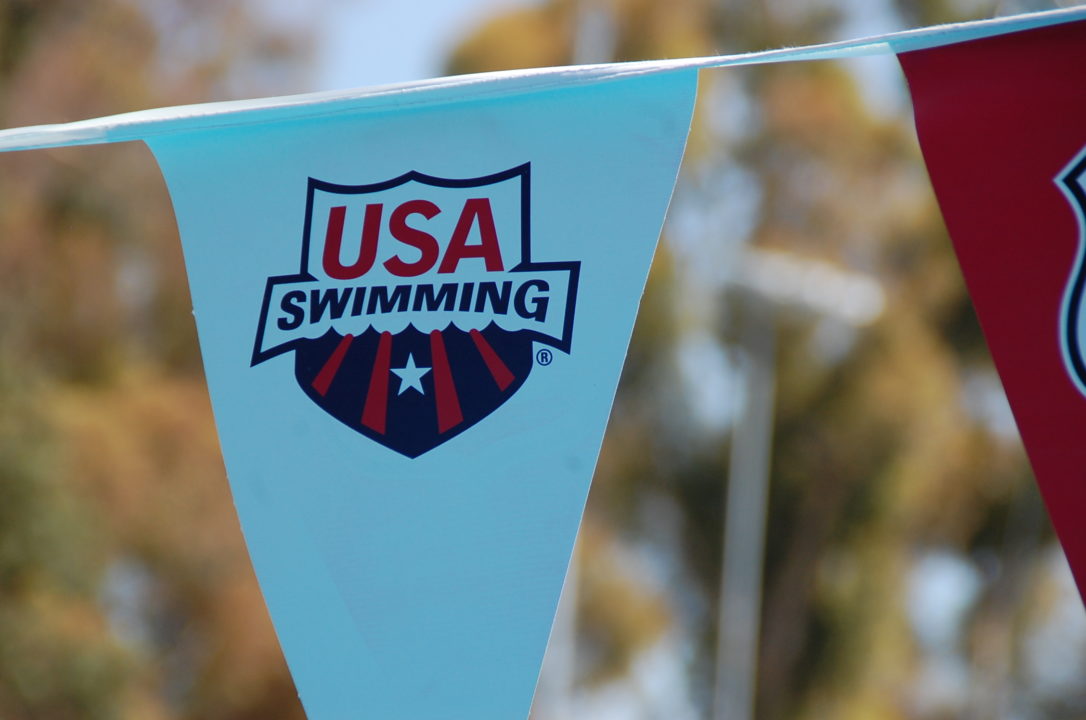USA Swimming recently released a set of proposals for its upcoming Special House of Delegates meeting on June 30, and among them is a drastic change in its composition to abide by United States Olympic and Paralympic Committee (USOPC) bylaws.
In order to comply with the Ted Stevens Olympic and Amateur Sports Act, one of USA Swimming’s requirements is to increase athlete representation on the Board of Directors to 33.3%. The current proposal is for this to take into effect immediately, and it has caused a variety of responses, including pushback from LSCs on the rapid reduction in their voting delegates.
This leaves the LSCs with a requirement to appoint three members to the House of Delegates in a very short timeframe, between the June 30 meeting and USA Swimming’s Annual Convention in September. This is also expected to have a long lasting effect on LSC Zone procedures, along with a loss in engagement from LSC volunteers.
The prevailing sentiment from the LSCs seems to be that there’s no need for USA Swimming to implement the HOD changes prior to the Convention in September, and they’d preferably like to have a reasonable timeframe to come to terms with their loss in voting delegates and put procedures in place to select their delegates.
Additionally, the American Swimming Coaches Association (ASCA) has responded by suggesting that the HOD proposal be removed from the June 30 meeting and moved to later in the year “so that more time, deliberation and involvement of stakeholders can be achieved before the proposal is brought to a vote.”
The ASCA has also requested that coaches get equal representation to the athletes, 33.3%, in the House of Delegates, Board of Directors and National Committees.
The ASCA “strongly supports guaranteed representation equal to the required 1/3 athlete representation,” as it urges USA Swimming to “recognize and value the vital contribution of coaches” to the success of the organization as a National Governing Body.
“Coaches are the lifeblood of our sport,” the statement reads. “We have a vested interest unlike any other stakeholder. We have devoted our lives and our careers to our athletes and to the sport, and in fact our families and our livelihoods depend on its success.
“To reduce our voice and our vote within the USA Swimming decision-making bodies would be detrimental to our sport and especially to the athletes whose lives we shape every day.”
The other call to action made by the ASCA was for the Athletes Advisory Committee (AAC) to be formed at the June 30 meeting in order to identify the athletes’ eligible to be included.

I agree that this proposal is ridiculous and coaches should have more say on the board, however (thanks to John Leonard) ASCA has lost a lot of credibility in the sport. When is the ASCA board going to take legal action (civil and criminal) to get the membership money back that walked out the door with former CEO, Leonard?
The 10 year swimmer rule, if I read this correctly, could fill 33% of board seats with 15 year olds. Can’t drive, vote or drink, but can vote on the direction of a $1B org.
Cool
Other way – you must have competed within the previous 10 years. For example I served on the Board of Directors and Athletes Executive Committee until I was in my Mid 30’s my time on the national team ended in my mid 20’s. Also the athlete leadership is exceedingly careful to elect athletes with relevant experience and interest in the governance of the sport.